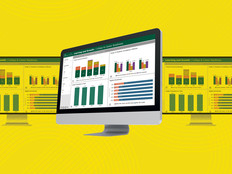Colorado's Big Data System Drives Education Reform
The allure of Big Data has many on the enterprise side of business incredibly enthusiastic about its possibilities. Retailers are hoping to unearth game-changing insights from Big Data that will help drive up sales and improve the customer experience.
The discussion around Big Data and schools is a bit more complicated, however. For starters, there are privacy concerns about Big Data initiatives in K–12 education.
“We are highly proprietary about student data,” said Linda Mariotti, assistant superintendent of teaching and learning services for Salt Lake City's Granite School District in a recent interview with EdTech. “We own it, we keep it, and anyone we partner with doesn't share it.”
While schools are right to be cautious about diving into Big Data without safeguards, it hasn’t slowed the Colorado Department of Education’s innovative Big Data program, the Relevant Information to Strengthen Education (RISE) initiative. It’s a massive undertaking that spans the state’s 860,000 students, 2,000 schools and 178 districts, according to InformationWeek.
Daniel Domagala, the Colorado Department of Education's CIO, recently spoke with InformationWeek about some of the reasoning behind the state’s analytics-based approach to education, which should shed light on how Big Data can play nicely in K–12.
Its data analysis has also helped reframe how Colorado looks at overall school performance. Instead of just being measured on absolute performance, schools now are also measured by performance growth rates. “That's changed the conversation, leveled the playing field a little bit for schools and districts that have struggled,” said Domagala.
Colorado has expand[ed] data gathering to include pre-kindergarten and post-secondary students. The “PK-20” program is part of a longitudinal database that will include data from five agencies, among them including human services, labor and corrections. Ultimately, Colorado hopes to understand how specific education initiatives contribute to life success.
That's going to take time, Domagala said. “There's so much we'd like to do, but within a government environment it's incredibly hard to find the talent we need to make the quantum leaps in information.”
The connections that Domagala is drawing about linking data from K–12 to college and professional life highlight a point that is overlooked. Big Data programs in K–12 aren’t the be-all and end-all when it comes to a student’s life in data, but it could be an important first step.









